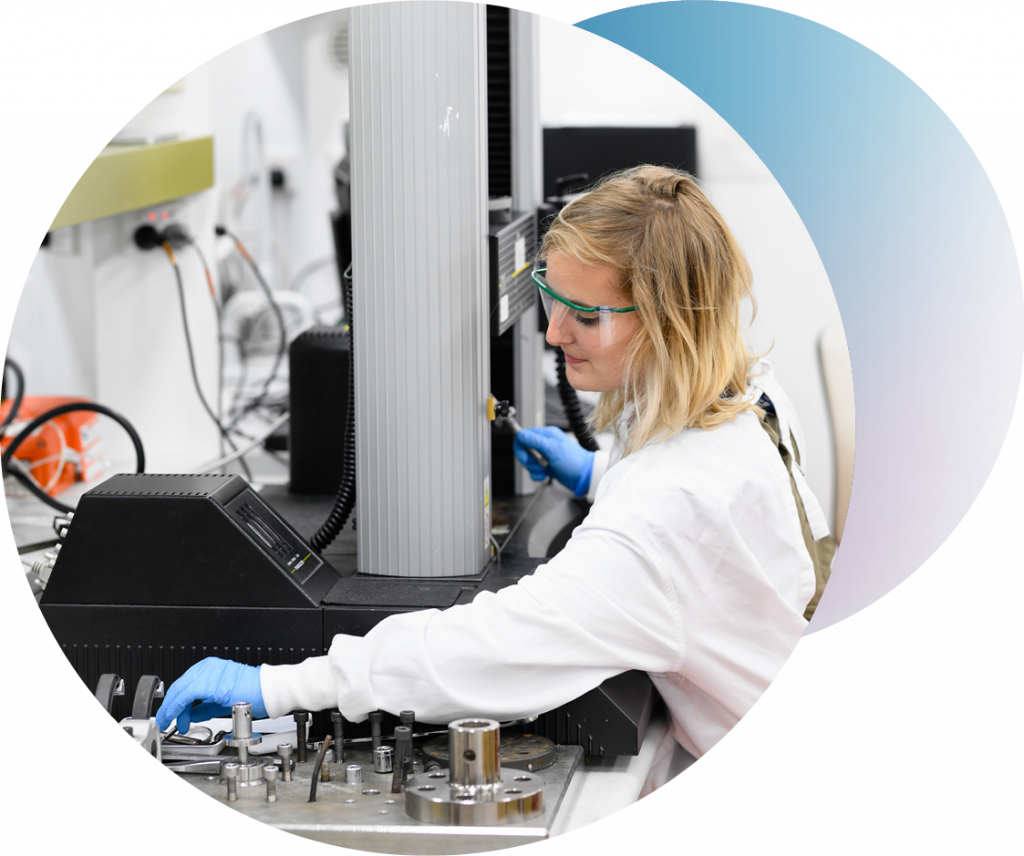Postdoctoral researchers
The ARC Training Centre in Cell and Tissue Engineering Technologies will offer positions for postdoctoral fellows to complete industry-led research and participate in a specially developed training program.
CTET’s research program will train postdoctoral research fellows to drive ground-breaking technologies in order to support the current and future market needs of the tissue engineering and regenerative medicine sector. The business-focused projects will provide the necessary background studies that will catalyse a highly productive commercialisation environment and aid the transition of small-medium enterprises into larger firms.

Hidden
Nicholas Andrikopoulos pursued an academic journey marked by multidisciplinary exploration in the interface of chemistry, biomaterials and bionanotechnology. He obtained his BSc degree in Chemistry in 2018 from the University of Crete, Greece, where he worked on the rapid synthesis of well-defined protein-polymer bioconjugates utilizing oxygen tolerant copper mediated living polymerization techniques. In 2023, he completed his PhD at Monash Institute of Pharmaceutical Sciences (MIPS), Monash University in Australia, where he developed expertise and broad technical skills in understanding the chemical and biophysical foundations of amyloid aggregation and protein corona, as well as implementing functionalized nanomaterials as multimodal amyloid aggregation inhibitors. Before joining CTET in April 2024, he expanded his expertise in amyloid research as a Research Assistant Professor at the Great Bay Area National Institute for Nanotechnology Innovation (Cannano) in Guangzhou, China, comprehending the biophysical impact of functional amyloid proteins on the aggregation of pathogenic amyloid proteins. As a Research Fellow at CTET, his research focuses on developing novel bioink formulations with cell-binding properties for extrusion bioprinting applications, leveraging RAFT polymerization and a spectrum of crosslinking strategies as well as assessing their structure-function relationships.

Hidden
Sacha studied biomedical engineering (2008-2011) during his BSc at the Ecole des Mines de St Etienne in France. Then, he did a Master of Science (2013-2015) and a PhD (2015-2020) at McGill University, Montreal, Canada where he explored the mechanical performances of bio-inspired materials for biomedical purposes. He developed prototypes of bone grafts made of calcium sulfate and titanium, or calcium sulfate and natural polymers with multilayered structures exhibiting a high resistance to crack propagation. In 2020, he conducted a three month doctoral internship at the University of Adelaide, Australia, where he investigated the visco-elastic properties of spinal dura mater in both human and animal models. Before joining CTET in September 2022, he was a postdoctoral researcher at the department of Chemical and Biomolecular Engineering, Ohio University, USA. His research focused on the development and characterization of mineralized collagen scaffolds for bone tissue engineering.

Hidden
Jann joined the Voelcker group at Monash in 2023 as a postdoctoral research fellow in the context of a Feodor Lynen stipend to work on nanoneedle-mediated cargo delivery to human induced pluripotent stem cells (hiPSCs). Within CTET, he focuses on nanoneedle platforms to enable the efficient generation of CAR-T cells for treating hematological and solid tumors. His multidisciplinary training started with studying physics while finishing with Bachelor’s and Master’s theses, which comprised biological aspects such as surface patterning for guided cell adhesion and patch clamping for electrophysiological readout. During his PhD, he further broadened his skill set by exploring the topographical impacts of nanoneedle arrays on neuronal hiPSC differentiation, including examining their functional integrity.

Dr Natalie Lister undertook postdoctoral training in immunology at the Curie Institute, France before specialising in prostate cancer biology and immunotherapy at Monash University. Her work aims to understand how combination therapies can improve CAR T therapy in prostate cancers using tumour models grown from men with aggressive prostate cancers.

Mina Mohseni is a passionate researcher with multidisciplinary skills in Tissue Engineering and Regenerative Medicine field. She finished her Master study in Biomedical Engineering at Sharif University of Technology, Iran in 2015 and received her PhD degree at QUT in 2019. In her PhD thesis, she proposed translatable workflows from materials to design, optimization, and additive manufacturing to tailor structural/mechanical properties of scaffolds for sustained large-volume soft tissue regeneration. After her PhD, she joined the Australian Institute for Bioengineering and Nanotechnology, UQ, as a Postdoctoral Research Fellow and worked on patients’ specific implants for musculoskeletal systems. She is now a Postdoctoral Research Fellow at CTET and working with BellaSeno on scaffold-guided breast tissue regeneration.

Di holds a background in immunology, having earned a degree in Biomedicine from the University of Melbourne. She completed her Master’s research at the Peter Doherty Institute for Infection and Immunity, followed by doctoral training in immunology at the Biomedical Discovery Institute, Monash University. Her PhD research, conducted in collaboration with an industry partner, focused on exploring the immunoregulatory mechanisms of mesenchymal stromal cell therapy. Currently, her work is centred on enhancing the directed differentiation of induced pluripotent stem cells (iPSCs) into T cells through surface modification, contributing to advancements in CAR T cell manufacturing for cancer treatment.
Affiliates

Accordion content
Yaping Chen gained her Ph.D. degree in immunology in 2017 from the School of Biomedical Sciences, Monash University, and has since been a research fellow at the Monash Institute of Pharmaceutical Sciences. She has established an interdisciplinary research program with a focus on both fundamental and applied nano–bio technology. Her research aims to develop novel, smart, and functional nano–bio interfaces for genetic modification and cell engineering, with the ultimate goal of improving current cellular immunotherapy. Within CTET, she is working with ULVAC and Nicholas Voelcker.
CTET will deliver a number of economic and health benefits through the training of students and postdoctoral researchers, including:

- Innovative biomimetic materials and cutting-edge technology solutions for the advanced manufacturing of cell-based or cell-derived products, sensors and monitoring systems for application in bioreactors which will lead to lower cost, more efficient, and more broadly available cell and tissue-based technologies
- Enhanced supply chain capabilities for cell and tissue engineering therapies
- Industry-ready graduates and early career researchers with innovative, translational, cross-disciplinary and entrepreneurial mind-sets
- Enhanced existing and new collaborative engagement between academia and industry leading to globally competitive commercialisation of tissue engineering and regenerative medicine technologies
- Strengthened networks of related Australian and global companies fostering a higher rate of successful collaboration, competitiveness and market access
- Advanced manufacturing and business development scale and capability that attract global investments into Australia
- Greater access of Australian SMEs to capital and investments for product and business development.




